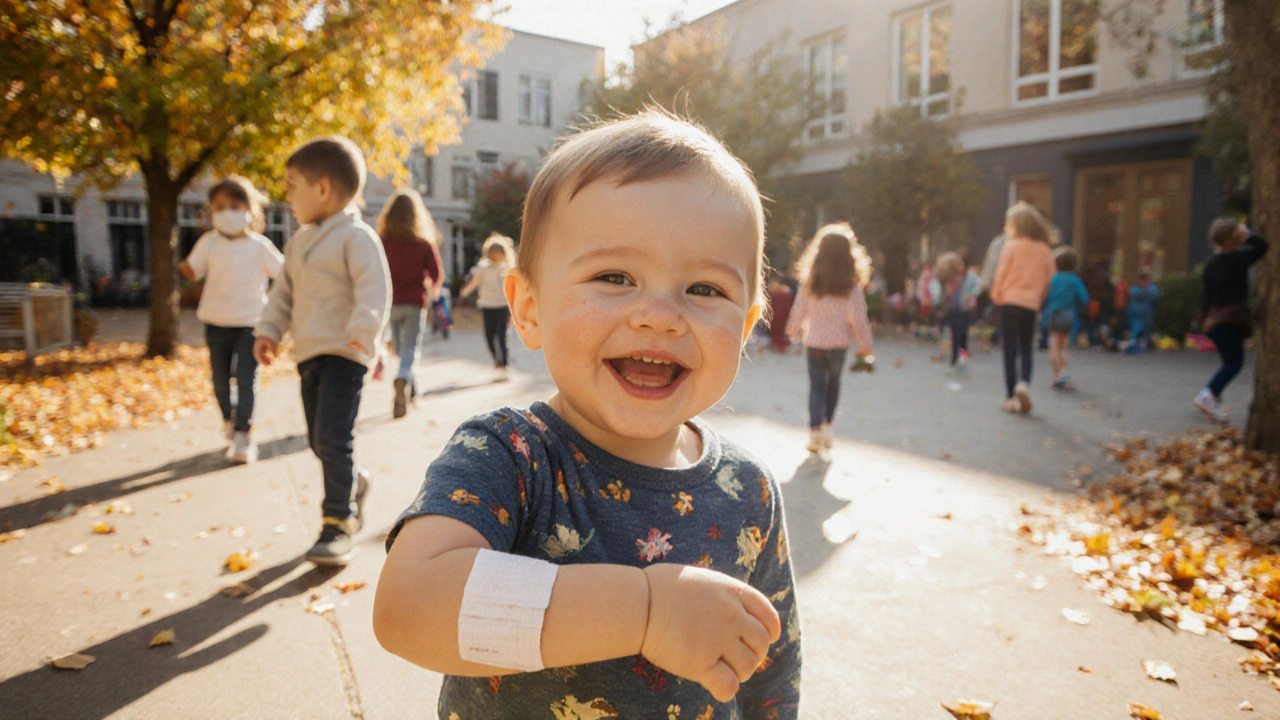Izolace po očkování: Co dělat, když dítě po očkování nemá chutě a jak ho chránit
When a child gets vaccinated, their body starts a quiet battle—izolace po očkování, období, kdy je dítěti lepší zůstat doma a vyhnout se přetížení, aby imunitní systém mohl pracovat bez rušení. Also known as doba klidu po očkování, it’s not about quarantining because the child is contagious—it’s about giving their body the space to respond properly to the vaccine. Many parents think that if the child doesn’t have a fever, they’re fine to go to daycare or play with friends. But that’s not always true. Even without a fever, the immune system is working hard. It’s like asking someone to run a marathon right after eating a big meal—possible? Yes. Smart? No.
reakce na vakcínu, běžná tělesná odpověď, která může zahrnovat mírnou horečku, únava, ztrátu chuti do jídla nebo mírné zarudnutí na místě vpichu. Also known as vedlejší účinky očkování, it’s not a sign of illness—it’s a sign the vaccine is doing its job. These reactions usually start within 24 to 48 hours and fade by day three. If your child is quieter than usual, doesn’t want to play, or only wants to cuddle, that’s normal. Don’t force them to eat. Don’t push them to go outside. Let them rest. Water, cuddles, and quiet time are the best medicine. You don’t need to give fever reducers unless the temperature goes above 38.5 °C and the child is clearly uncomfortable. And no, a mild fever after vaccination doesn’t mean the child caught a cold—it means their immune system is learning.
horečka po očkování, nejběžnější reakce na vakcíny, která trvá obvykle 1–3 dny a není nebezpečná, pokud není příliš vysoká nebo trvá déle. Also known as vývojová horečka, it’s the body’s way of turning on its defense system. If your child has a fever after vaccination, keep them cool, hydrated, and calm. Don’t bundle them up. Don’t give them a cold bath. Just keep the room at a comfortable temperature and offer small sips of water or breastmilk/formula often. If the fever lasts more than 48 hours, or if your child starts vomiting, has trouble breathing, or becomes unusually lethargic, call your pediatrician. But for most kids, it’s just a quiet day or two of rest.
And here’s the thing: izolace po očkování isn’t about keeping your child away from germs—it’s about keeping germs away from your child. Their immune system is busy. It doesn’t need extra stress from other sick kids, loud playgrounds, or crowded buses. Even if they feel fine, their body is still adjusting. Think of it like giving your phone a software update—you don’t turn it off and on again right away. You let it finish.
What about siblings? If you have another child at home who’s sick, keep them separated. Even if the vaccinated child seems fine, their body is vulnerable. It’s not about fear—it’s about smart protection. And if your child is going to daycare, check their policy. Many places ask you to keep kids home for 24–48 hours after vaccination, especially after the first doses. That’s not bureaucracy—it’s common sense.
You’ll find real stories below—from parents who thought their child was getting sick after the shot, only to realize it was just the vaccine working. You’ll see what helps when your child won’t eat, how to tell the difference between a normal reaction and something serious, and why sometimes the best thing you can do is nothing at all.

